Ever wondered what to do with the old clothes pile that you have been hoarding? Well, this duo has been recycling used clothes to create unique and stunning bags for the past four years.
Abdul Muhaimin Abdul Hadi, 29, and Muhammad Harrith Hasmadi, 27 are the masterminds behind Hashadi, a local designer brand making waves by transforming used clothes into unique and stunning handbags and bags for women.
According to FMT, the brand name Hashadi is a portmanteau of their fathers’ names.
Hashadi’s journey began amidst the challenges of the COVID-19 pandemic. With job opportunities scarce, Abdul Muhaimin (Min), armed with a degree in Fashion Design, and Harrith, pursuing a degree in Teaching English as a Second Language, saw an opportunity to repurpose old clothes.
What started as a way to earn pocket money and hone their skills became a thriving business.
“In early 2020, when the pandemic hit, we had time on our hands. Harrith suggested turning his old clothes into tote bags. Skeptical at first, I agreed to give it a try,” Min recalled.

Thus, Hashadi was born, with an Instagram account showcasing their creations.
After posting pictures of their first creation, tote bags, they received a lot of positive feedback from their friends and family who encouraged them to produce more bags.
Sewing their way through challenges
Their journey wasn’t without challenges. Neither had prior business experience, but they learnt on the fly, from time management to customer service.
“Each bag took hours to make, but positive feedback kept us going,” the co-founders added.
They also noted that many things have changed since they first launched their product.
“We used to create bags that are different for each design in every collection which surely takes us much time and effort,” they said.
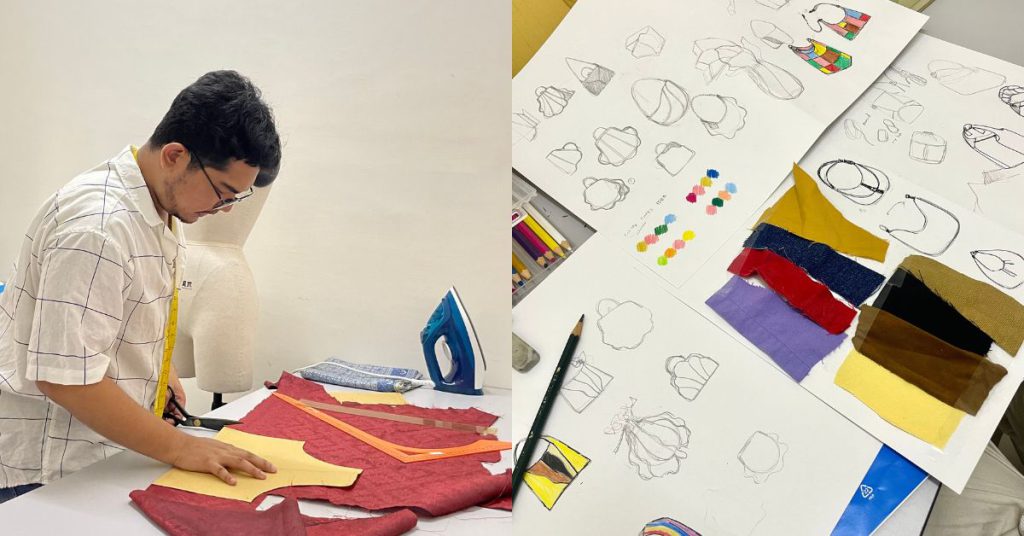
Now they are focusing more on creating commercial bags whereby the design is standardised for each collection to optimise time and cost. However, these designs still stand out with the use of different fabrics.
In the early days, they also struggled to be consistent in creating products as they lived far away from each other.
“It’s hard for us to discuss and communicate about the business. But with technology nowadays, we can Facetime or video call, which helps us in many ways where we can have a meeting virtually anytime convenient for both parties,” they said.
From wedding remnants to fashion statements
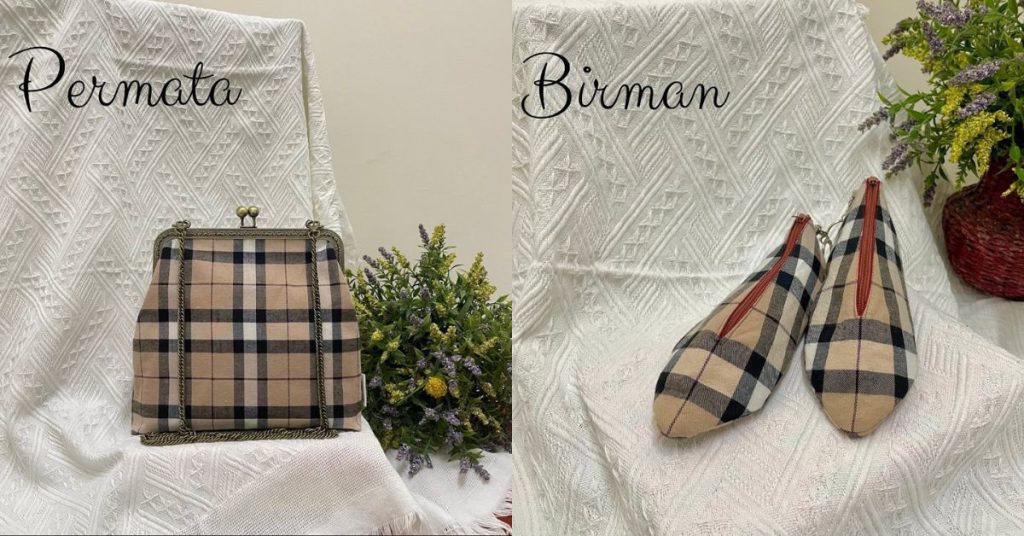
Initially sourcing materials from friends, family, and thrift stores, Hashadi now collaborates with a bridal boutique in Penang, utilising fabric remnants to create one-of-a-kind bags.
“All the remnants from making wedding dresses vary from lace, satin, and songket. Normally, each fabric remnant can make up for only one bag. However, depending on the size of the remnant, we would produce more than one bag upon request,” they said.
They shared that the average time spent for each bag could vary from two to seven hours from start to finish depending on the size and complexity of the design.
“Usually, we release at least one collection per month offering six to 12 bags with different colours and designs depending on the materials that we have at the moment.”
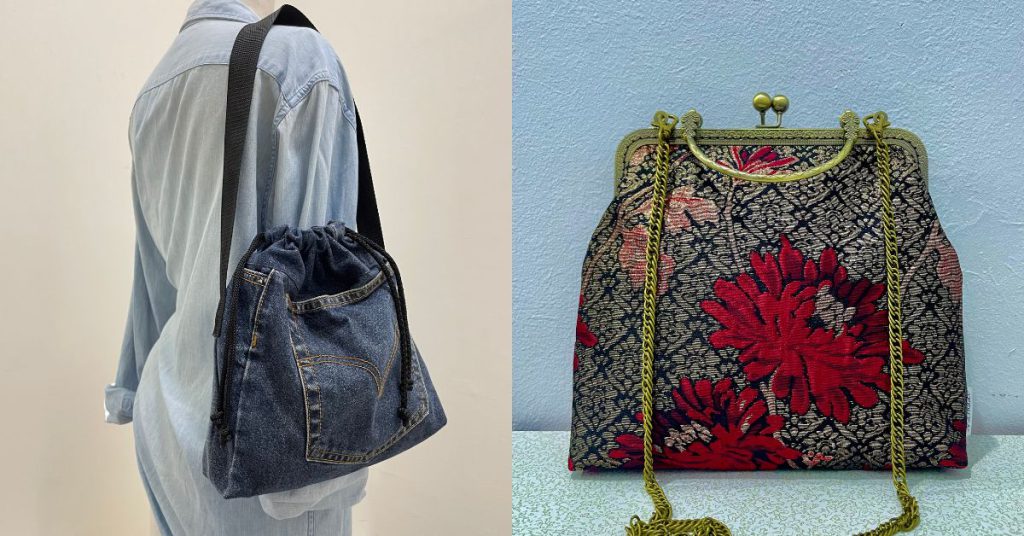
Hashadi now also offers a variety of collections including elegant clutches, crossbody bags, shoulder bags, and envelope purses all made from old fabric including denim and lace.
Thus far, their designs, inspired by social media and Malaysian culture, resonate with a diverse customer base.
“We’re proud to incorporate traditional fabrics like songket, batik, and saree into our designs. It’s our way of celebrating Malaysian heritage,” they explained.
However, they can only produce limited quantities at the moment as they are still a two-man show, with no immediate plans of expanding.
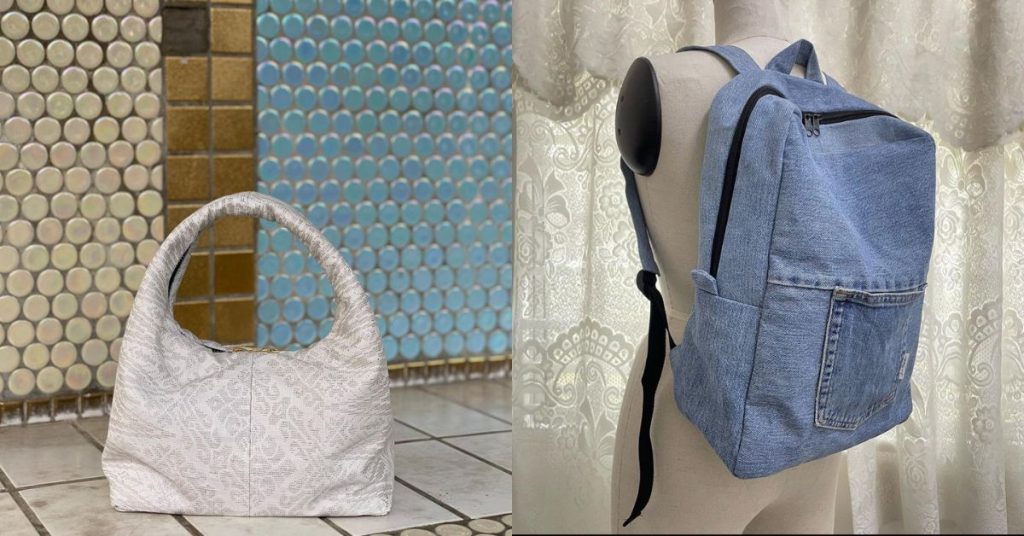
On their way to making it
Despite geographical challenges—with Min managing operations while Harrith pursues a full-time career—Hashadi continues to thrive.
Collaborations with local designers and appearances at pop-up events have expanded their reach.
One of their proudest moments was selling their first collaborative bags offline at a pop-up booth in The Godown Art Centre, Kuala Lumpur, on July 2023.
One thing led to another, and on December 2023, Hashadi once again joined a pop-up booth at Karnival Merakyatkan Seni Akademi Seni Budaya Dan Warisan Kebangsaan at Sports Arena, Kuala Lumpur.
“It was special to see our creations resonate with customers,” they recalled.
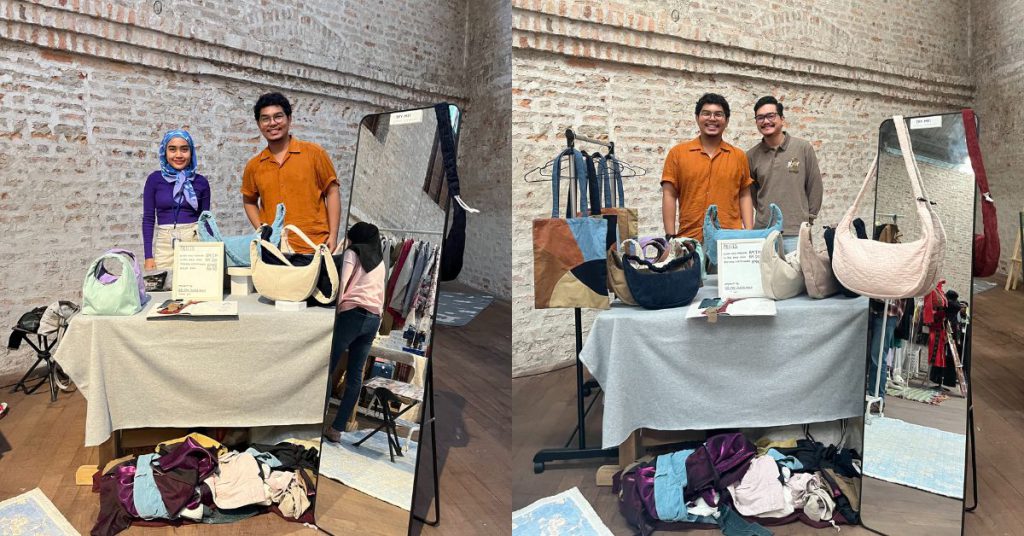
Reflecting on their journey which started four years ago, they emphasised the importance of persistence.
“Starting a business is one thing, but maintaining relevance is another. It takes effort and patience,” the co-founders said.
Their dedication hasn’t gone unnoticed. Hashadi’s appearance on national television was a milestone moment, showcasing their journey to a wider audience.
As they continue to turn old clothes into fashion statements, Min and Harrith dream of scaling up Hashadi into a full-time venture, catering to both men and women.
- You can learn more about their business here.
- Read other articles we’ve written about Malaysian startups here.
Featured Image Credit: Hashadi











